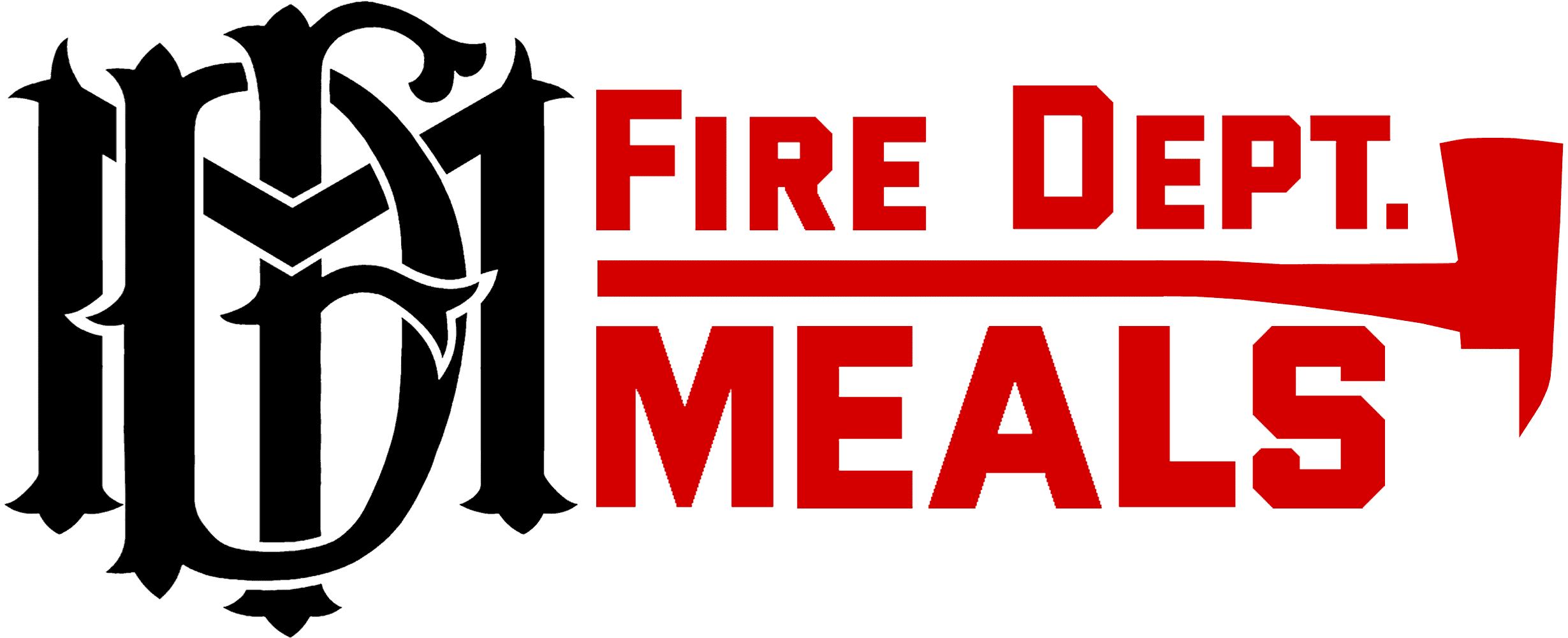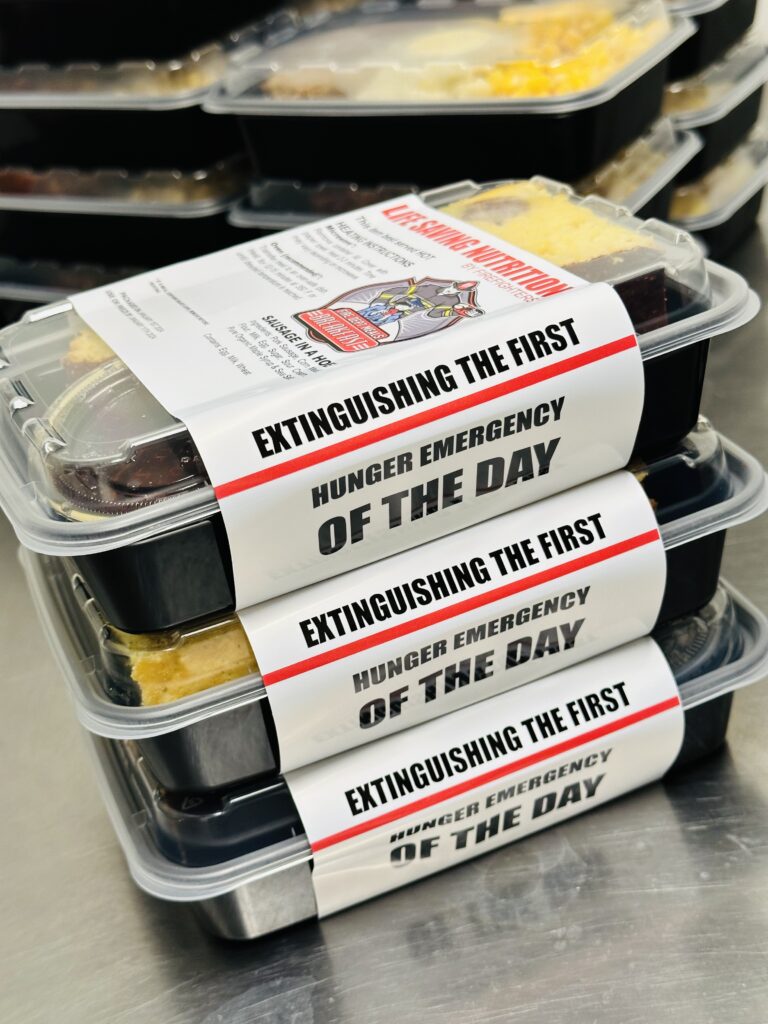Macronutrients Balance is the Key
The three macronutrients that your body utilizes are protein, carbohydrates, and fat. They are called macronutrients because the human body requires large amounts of each to function. Many popular diets have you focusing on one of the three macronutrients at the expense of two others, but this is a misconception of healthy living. Your body requires all three to maintain a healthy equilibrium. No specific diet will help you achieve this—instead, portion control and a balance of the macronutrients are key. In this blog post, we will do a quick overview of what each of the three macronutrients does for you—and how Fire Dept. Meals can help you achieve that balance with our diverse and well-portioned meals.
The Three Macronutrients
Protein – The Building Blocks
The macronutrient protein is the essential component of building muscle mass. Next to water, proteins are the second most abundant molecule in your body. To maintain a healthy body mass, humans have to get their protein from food sources on a regular basis. The amount of protein you need is dependent on the amount of workload your muscles are engaged in. If you exercise regularly, you will need to consume more protein to build muscle mass and maintain the progression.
Proteins are abundant in:
- Meat
- Poultry
- Seafood
- Beans
- Eggs
- Nuts and Seeds
Carbs – The Immediate Fuel Source
Carbohydrates, or carbs for short, is a macronutrient that serves as a fuel source of the human body. Carbs have a bad reputation across many diets. The consumption of carbs is regularly demonized. But cutting out carbs or vastly reducing their consumption is not a path to a healthy lifestyle. Carbs are one of the three macronutrients, and therefore key to the bodies continuing function. What matters is the type of carbs consumed. There are three main categories of dietary carbohydrates:
- Sugars
- Starches
- Fiber
The first two are digested into energy, while fiber is not digested but serves a vital purpose for the human body. What matters most when attempting a balanced and healthy diet is the type of carbs you consumed.
Complex and Simple Carbs
Dietary carbs are divided between complex and simple carbs. Simple carbs are refined carbs that have the fiber removed. Sugar, white bread, and pastries are just a few foods that provide simple carbs. The fiber in complex carbs is essential to a balanced diet, and they provide longer lasting energy by comparison to simple carbs. So when you think of carbs as an essential macronutrient, think complex carbs.
Some foods that provide complex carbs are:
- Vegetables
- Quinoa
- Potatoes
- Whole Grains
- Legumes
- Barley
Fats – The Oil that Keeps You Going
Another maligned macronutrient is fats. Fats over the decades have received a bad rap but have recently been identified as a healthy component of a balanced diet. Fats are necessary for the human body due to their energy-storing potential. They provide both a long-term and an emergency solution to energy. Think of carbs as the gas immediately needed to get your car going for a single trip and the fat as the oil (both figuratively and literally) that allows your car to function and go on multiple trips. The key, just like carbs, is the type of fats you consume. There are four types of dietary fats:
- Trans Fat
- Saturated Fats
- Monounsaturated Fats
- Polyunsaturated Fats
Trans fat is the absolute worst in this category and provides absolutely no health benefits. Thankfully in the United States, you do not have to worry about trans fat because they have been officially banned since 2018.
Saturated fats inhabit a murkier territory of nutritional science, and though it is not to be avoided at all costs, their consumption should be regulated.
The two fats that are good for a balanced diet are monounsaturated and polyunsaturated fats.
Here are foods that are rich in monounsaturated polyunsaturated fats:
- Olive oil
- Peanut oil
- Canola oil
- Avocados
- Nuts
- Sunflower oil
- Safflower oil
- Corn oil
How Fire Dept. Meals Helps You Achieve a Balanced Diet!
When planning to make dinner with your busy schedule, you might feel the urge to skip out on the cooking. Instead, you might forego dinner for highly processed frozen meals or fast-food. Highly processed frozen meals and fast-food are packed with lots of simple carbs and saturated fats and lack a substantial amount of protein. This is not even considering the perseveratives that might be in those meals. Instead of skimping on a homemade dinner, why not have excellent cooks deliver homecooked meals to you?
Take a look at our meals, and you will see that each one is balanced with the macronutrients your body needs. Each meal is freshly cooked and delivered every week, ignoring unhealthy preservatives in the process. By having Fire Dept. Meals at your dinner table you will have well-proportioned meals that allow you to maintain a balanced diet. Just take out each meal and heat it—no time wasted on cooking. It cuts out the compulsion to order fast-food entirely! Order your meals today and begin a diet focused on balanced macronutrients!
FIRE DEPT. MEALS
At Fire Dept. Meals, we’re ready and happy to serve you the freshest, healthiest, delicious food around. Choosing us as your meal delivery service. because we are unlike any meal prep delivery service. When it comes to ingredients, preparation methods, servings sizes, and our commitment to our customers, we are at the top of our game!
At Fire Dept. Meals we have:
- No Cross Contamination with Vegan and Non-Vegan meals
- Additive & Preservative-Free
- Fresh Locally Sourced Produce
- Fresh Organically Sourced Spices
- Small Batch Homestyle Cooking
- Allergen Restriction Compatible
READY TO EAT?
As firefighters, we’re always ready to get up and go! If you’re ready to order your meals, check out our weekly menu of delicious foods and we’ll deliver it from the Firehouse to your house. For questions, you can always contact us here. Happy eating!







